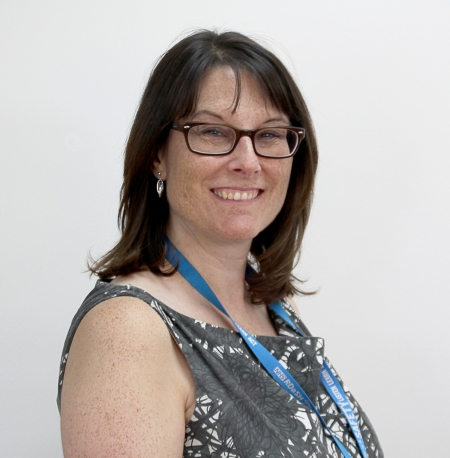
“It’s ok not to be ok,” is the message from a health trust director who herself suffered from ‘burn out’ or a nervous breakdown.
She says it doesn’t matter what the label is but she could not cope and she did not see the anxiety and depression coming.
Jo McDonough, Director for Strategy at Rotherham Doncaster and South Humber NHS Foundation Trust (RDaSH) spoke at Doncaster’s Mentally Well-being Alliance, sharing her story, to show others that the stigma around mental health needs to be broken down and that mental health illness can happen to anyone.
For Jo the pressure had been building. A close friend died, her parents were ill, she had a heavy workload, a physical illness and was studying her masters.
“My life felt, in both a personal and professional way, it was a juggling act. I was juggling lots of challenges,” said Jo, who is based in Doncaster. “I was walking a tightrope and had a heavy load. Lots of things were building up and affecting my mental health. I also wanted to be the best, the best sister, best daughter, best director, and was, and still am, so very passionate about patients and their care as well as the staff I manage. I have a perfectionist streak but it all started to take its toll.
“I thought I was ok and I clearly wasn’t,” she added. “In January 2020 I reached burn out, some would say a nervous breakdown. It doesn’t matter what the label is, I simply could not cope any longer. I was really unwell.”
Jo drove home that day and couldn’t even remember how she got home. She suffered four weeks being anxious and agitated and not sleeping, with nervous energy, criticising herself, which then led to depression.
“I felt so extremely low, “said Jo. “I had no motivation and the saying that there’s a black cloud over you is so true. I got no pleasure out of anything, I’d no optimism about the future.”
Jo asked for help. Her GP supported her and Jo’s employer, RDaSH, supported via counselling, together with lots of love and support from her family. However, as Jo was getting better and ready to return to work COVID-19 struck, and she saw her husband contract the illness and on a ventilator. He was so ill he nearly passed away.
“All of this really made me think about what was important in life,” added Jo. I realised the high bar was set by me, I was my harshest critic, I put everyone ahead of myself. I suddenly realised that even though I cared for my mum, manager, employees, friends, I also had to care about me!
“RDaSH as an employer has been amazing, so have my family. I’m on a road, not to recovery, but a road where I have to prioritise my own mental health and I need to stay on for the rest of my life.”
Jo, who was talking to the group to show how she is helping to breakdown the stigma of mental health, is also encouraging others to seek help if they feel like she did. Jo made her illness very public on Twitter and at work.
“If you feel like I did please get help,” stressed Jo.
RDaSH has a range of services to support residents feeling low, depressed or anxious. It’s Improving Access to Psychological Therapies teams are on hand to help and support. They can be contacted on:
- Doncaster - 01302 565556
- Rotherham - 01709 447755
- Scunthorpe - 01724 867297.
RDaSH also has a crisis team for anyone really ill with their mental health and they can be contacted on:
- Doncaster – Freephone 0800 804 8999
- Rotherham – Freephone 0800 652 9571
- North Lincolnshire – Freephone 0800 015 0211.
There is also a whole host of advice on the RDaSH website here: www.rdash.nhs.uk
